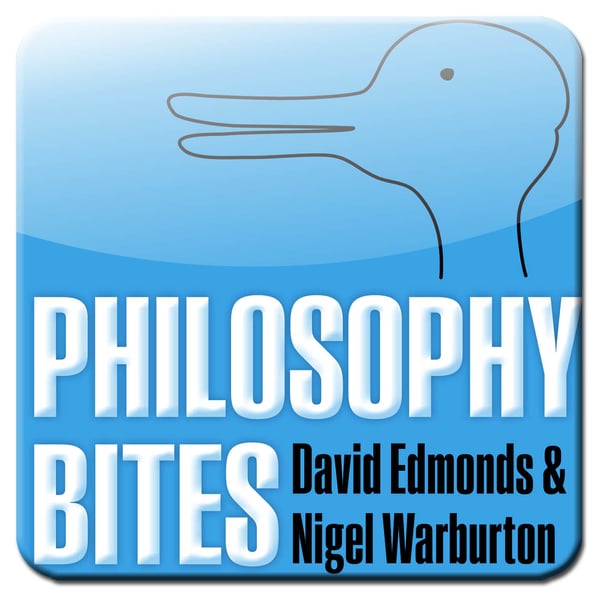Edith Hall on Aristotle's Way
Philosophy Bites
Nigel Warburton
4.6 • 2K Ratings
🗓️ 27 November 2022
⏱️ 17 minutes
🧾️ Download transcript
Summary
How should we live? This is the basic question for all of us. In this episode of the Philosophy Bites podcast Edith Hall, author of the book Aristotle's Way, gives a sympathetic answer to Aristotle's take on this question.
Transcript
Click on a timestamp to play from that location
| 0:00.0 | This is Philosophy Bites with me, Nigel Warburton and me, David Edmunds. |
| 0:07.7 | If you enjoy Philosophy Bites, please support us. We're currently unfunded and all donations |
| 0:12.5 | would be gratefully received. For details, go to www.philosophybites.com. |
| 0:19.1 | Here's a minor question. How should you live your life? In other words, how should you |
| 0:23.6 | behave? What should you value? Not easy to answer, but Aristotle had a few ideas about |
| 0:29.1 | this. As the classicist and Aristotelian scholar, Edith Hall explains. |
| 0:34.2 | Edith Hall, welcome to Philosophy Bites. Hi, it's great to be here, Nigel. |
| 0:38.0 | The topic we're going to talk about today is Aristotle's way. Well, we know who Aristotle |
| 0:43.4 | is, but what's his way? Aristotle was a philosopher who included, amongst the thinking he was interested |
| 0:49.3 | in, ethics, which is the question, how should we live? So it's a way of life, it's a way |
| 0:54.9 | of dealing with moral questions, making decisions, and trying to find the way to be the happiest |
| 1:01.4 | human we can. So the way is a kind of method of living? Yes, he did actually use metaphors |
| 1:07.5 | for roads and traveling, and he was a parapetetic. That means he was a guy who liked to do his philosophy |
| 1:13.4 | while walking and dialogue with his students. But it's more that he saw life as a journey. In fact, |
| 1:20.2 | he sometimes used the metaphor of an odyssey, where you have set goals that you have set yourself, |
| 1:25.5 | things you want to achieve, and then practical methods of dealing with decision-making and |
| 1:31.5 | handling your emotions and your relationships in practice. This is practical moral philosophy, |
| 1:36.6 | not abstract or sort of cerebral metaphysics about life and death and the gods. This is about how |
| 1:42.8 | I live, I as an individual make my decisions. And what am I in Aristotle's view? What kind of a thing? |
| 1:49.1 | You are, I am, we are both animals. He famously said that man is a political animal, and that's |
| 1:57.1 | commonly misunderstood as that we're all quite devious or Machiavellian or something. It didn't |
| 2:01.5 | mean that at all. He meant we're just a zoon, which was the word for any old animal. The difference |
... |
Please login to see the full transcript.
Disclaimer: The podcast and artwork embedded on this page are from Nigel Warburton, and are the property of its owner and not affiliated with or endorsed by Tapesearch.
Generated transcripts are the property of Nigel Warburton and are distributed freely under the Fair Use doctrine. Transcripts generated by Tapesearch are not guaranteed to be accurate.
Copyright © Tapesearch 2025.

